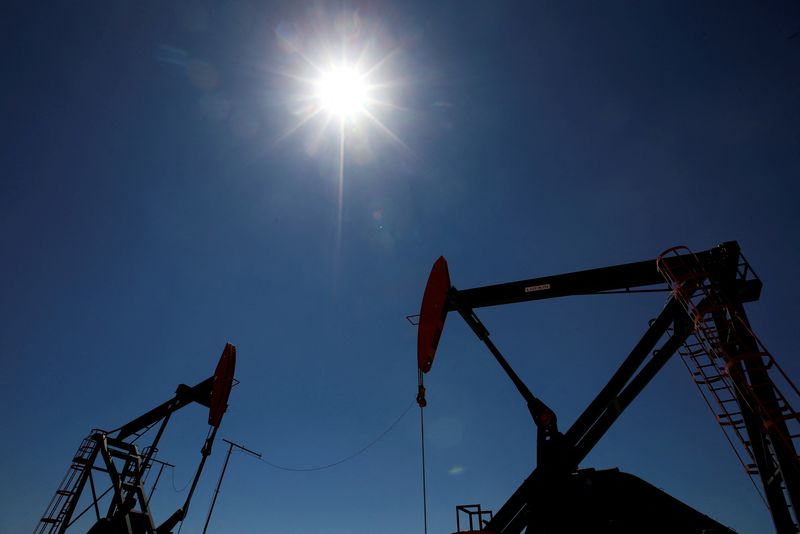By Arathy Somasekhar
HOUSTON (Reuters) - Oil prices surged 4% on Monday, recouping some of last week's steep losses, as military clashes between Israel and the Palestinian Islamist group Hamas ignited fears that a wider conflict could hit oil supply from the Middle East.
Brent crude settled $3.57, or 4.2%, higher at $88.15 a barrel. U.S. West Texas Intermediate crude closed at $86.38 a barrel, up $3.59 or 4.3%. At their session highs, both benchmarks spiked by more than $4, or over 5%.
Last week, Brent fell about 11% and WTI retreated more than 8%, the biggest weekly decline since March, as a darkening macroeconomic outlook intensified concerns about global demand.
On Saturday, Hamas launched the largest military assault on Israel in decades. Israel retaliated with a wave of air strikes on Gaza.
"The most serious outcome for crude is that the conflict escalates into a more devastating proxy war which could affect crude supply," said Rebecca Babin, senior energy trader at CIBC Private Wealth US.
Israel's port of Ashkelon and its oil terminal have been shut in the wake of the conflict, sources said.
The eruption of violence threatens to derail U.S. efforts to broker a rapprochement between Saudi Arabia and Israel, in which the kingdom would normalize ties with Israel in return for a defense deal between Washington and Riyadh.
Saudi officials reportedly on Friday told the White House they were willing to raise output next year as part of the proposed Israel deal.
Goldman Sachs (NYSE:GS) said the conflict reduced the likelihood of normalization of Israel's relations with Saudi Arabia, and the associated boost to Saudi production over time. It does not see any immediate major effect on near-term oil inventories from the attacks.
Riyadh and Moscow have agreed to a combined 1.3 million barrel per day (bpd) voluntary cut until the end of 2023. New disruptions would exacerbate an expected supply tightness for the rest of the year.
Analysts suggested the implications of the conflict could include a potential slowdown in Iranian exports, which have grown significantly this year, despite U.S. sanctions.
"If the U.S. were to judge that Iran is involved in Hamas' attack, this could lead it to 'turn the screws' on Iran's oil exports by enforcing sanctions more strictly," said Caroline Bain, chief commodities economist at Capital Economics.
Iran's production has risen by close to 600,000 barrels per day during the past year while crude stored on and offshore has been sold into market, mitigating some of the tightness being orchestrated by Saudi Arabia and Russia, said Saxo Bank's Ole Hansen.
Meanwhile, Venezuela and the U.S. have progressed in talks that could provide sanctions relief to Caracas by allowing at least one additional foreign oil firm to take Venezuelan crude oil for debt repayment if President Nicolas Maduro resumes negotiations with the opposition in Mexico, sources said.

The conflict is likely to lead to higher volatility and speculation in oil markets, the CEO of Brazil's Petrobras said.
On the demand side, major international air carriers have suspended or scaled back flights to or from Tel Aviv after the attack. High oil price due to the conflict could bolster inflation, analysts said, forcing rate hikes that could dampen demand.